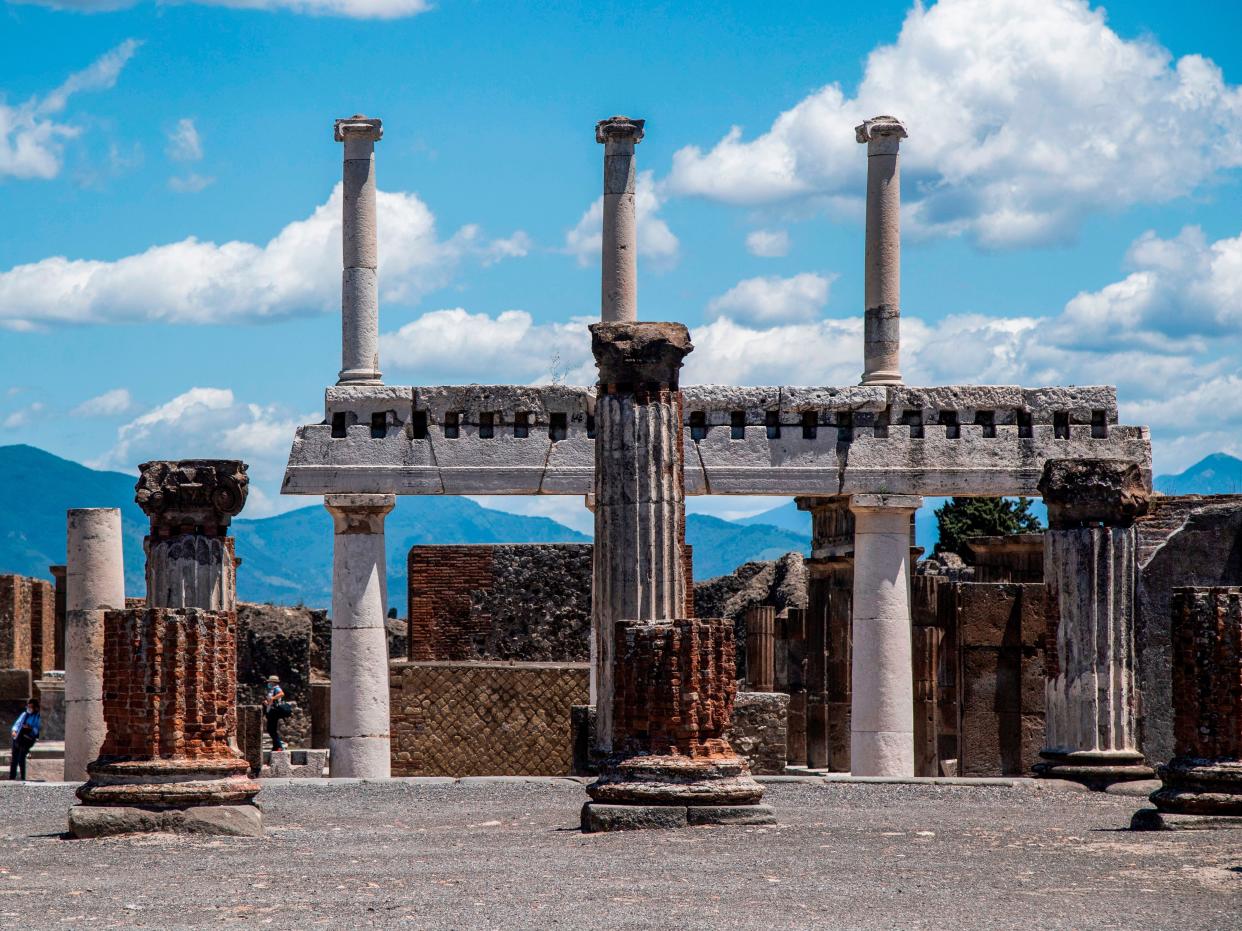Woman who stole 'cursed' artefacts from Pompeii returns them after 15 years of bad luck

A tourist has returned artefacts she stole from Pompeii 15 years ago, claiming the items are “cursed”.
The Canadian penitent said that bad luck had “plagued” her and her family ever since she stole tiles from the site of the infamous ancient calamity in her early 20s.
In a bid to assuage the fury of “the Gods”, the woman – who called herself Nicole – returned the objects to a travel agency in an envelope also containing the letter of apology, local media reported.
Nicole said she feared the theft of two mosaic tiles, a chunk of ceramic, and parts of an amphora were responsible for her family’s financial misfortune and for her, now 36, having twice been diagnosed with breast cancer, resulting in a double mastectomy.
“We can’t seem to ever get ahead in life. We are good people and I don’t want to pass this curse on to my family, my children or myself any more,” she wrote in a letter, an image of which was published by Il Messaggero.
“Please forgive my careless act that I did years ago. I really have learned my lesson.”
The letter was received by a travel agency who then handed the objects over to Pompeii’s gendarmerie police, the Carabinieri, the Corriere della Sera reported. They have been returned to the park safely.
Thousands were killed in the ancient Roman city of Pompeii when neighbouring Mount Vesuvius erupted in 79 AD, preserved in their final throes by the millions of tonnes of volcanic ash that buried the city and hid it from humankind until it was rediscovered in the late 16th century.
The lost city’s discovery was critical in furthering modern understanding of the era – providing a frozen glimpse into daily life in Pompeii and its residents’ final moments.
Prior to this, historians had been largely reliant upon the account of Pliny the Younger, whose letters detailing the atrocity told of residents being robbed of their faith in the gods in their fear of witnessing what they believed to be “the final endless night”.
“I wanted to have a piece of history that couldn’t be bought,” wrote Nicole, nearly two millenia later.
“I never realised or thought about what I was actually taking. I took a piece of history captured in time that has so much negative energy attached to it. People died in such a horrible way and I took tiles related to that kind of destruction.”
Thefts by tourists have long posed a problem for officials at the archaeological site.
In the past few years, however, “hundreds” of stolen items have been returned, with the park’s director general Massimo Osanna telling Il Messaggero in 2014: "People write expressing regret, having realised they have made a terrible mistake and that they would never do it again and for this reason they are sending the stolen pieces back.
“But the most curious thing, from an anthropological point of view, are the letters that accompany the stolen fragments which reveal a cross-section of people worth studying.”
Read more
Ancient images of gladiators unearthed at city of Pompeii
Pompeii destruction date may be wrong, archaeologists discover
Mount Vesuvius eruption so hot it ‘turned victim’s brain to glass’


